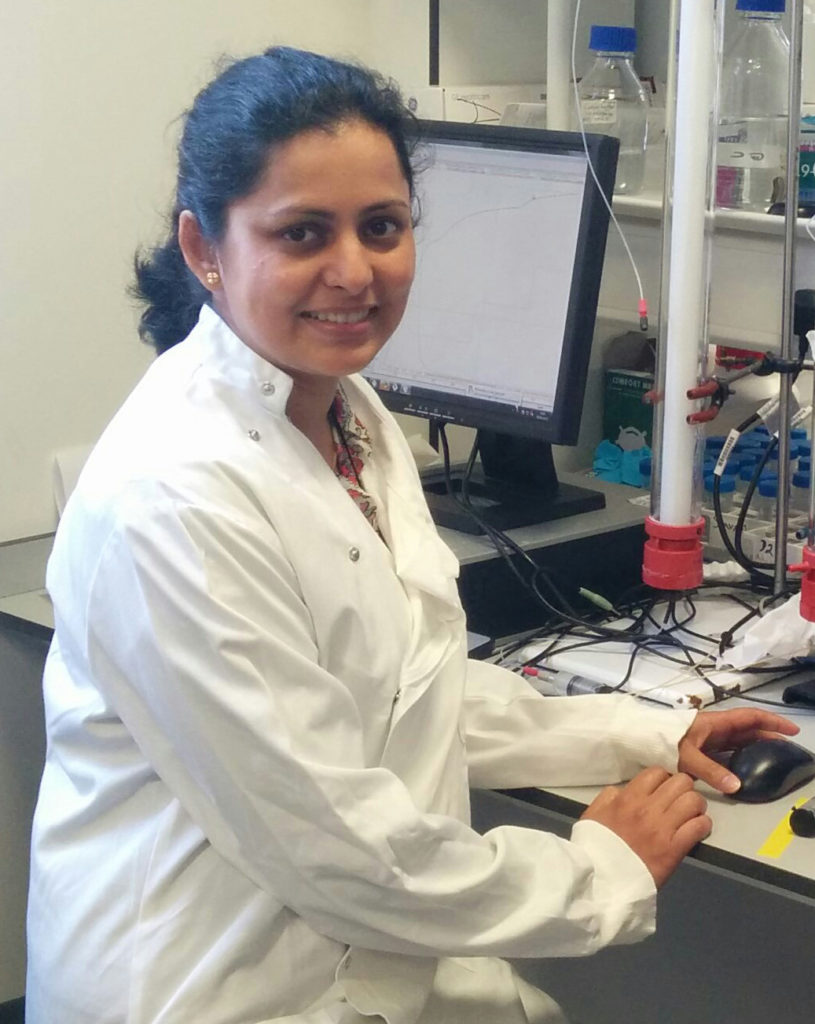Dendritic cells are key immune cells that respond to pathogens and co-ordinate many innate and adaptive immune responses. Dr Swati Arya and Dr Dagmara Wiatrek-Moumoulidis from the Stewart group, together with Dr Simon Powis and researchers from the Mass Spectrometry team in St Andrews (led Dr Sally Shirran) have used SWATH-MS to quantitively measure proteomic changes that occur in monocyte-derived dendritic cells (moDCs) following activation by lipopolysaccharide (LPS). A moDC library of 4,666 proteins was generated and proteins were quantified at 0, 6 and 24 h post-LPS stimulation using SWATH-MS. Functional annotation of proteins exhibiting significant changes in expression between the various time points led to the identification of clusters of proteins implicated in distinct cellular processes including interferon and interleukin signalling, endocytosis, the ER-phagosome pathway and antigen-presentation. This study provides new detailed insight into the global proteomic changes that occur in moDCs during antigen processing and presentation and further demonstrate the potential of SWATH-MS for the quantitative study of proteins involved in cellular processes. This work will be published in the online open-access journal, Scientific Reports.


